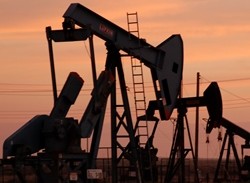Oil prices are collapsing and in turn are pushing down linked commodity prices on the continent and prices at the pump closer to home but we’re unlikely to see short, medium or long-term downward pressure on energy prices in the UK.
are collapsing and in turn are pushing down linked commodity prices on the continent and prices at the pump closer to home but we’re unlikely to see short, medium or long-term downward pressure on energy prices in the UK.
Not only do we in the UK not benefit from oil index linked gas contracts that lower the price of gas in a falling oil market and electricity with gas as a dominant generation source, but we also face the potential for the ‘great white hope’ of the UK energy market becoming uneconomic.
The global slump in crude oil prices and the increasingly evolving new market dynamic, with marginalisation of Saudi Arabia and OPEC in the face of Libyan and Iranian exports, and the success of US fracking and a highly politicised backdrop of energy dependent governments and economies, has meant that the principles of the market and the cost of entry to new generation has been altered, potentially for good.
The immediate impact is the diminishing economic rationale for fracking
Bids from companies for licences to search and drill for oil onshore in the UK are due this month and had been expected, notwithstanding political, social and environmental obstacles, to announce the start of the UK shale oil and gas “revolution”.
With a barrel of oil having fallen from $115 to $80 even traditional and proven oil sources are rendered uneconomic let alone unproven, costly and by no means guaranteed ventures.
Fracking’s very existence as “tight oil” means it is most at risk of the diminishing oil price given its expensive processes and unproven reserves.
Some commentators talk of traditional OPEC and non OPEC countries simply facing off for market share. Others claim that some or all are colluding to place downward pressure on the oil price and render further shale revolutions simply uneconomic.
The US success in decoupling themselves from much of their energy dependency through shale has been great news for them, less so for the traditional oil producers and it is clear that they don’t want to see a repeat in other key export markets. Regimes as well as economies rely on the status quo.
Whether intentional or not, the current oil price means the UKs shale revolution is further away than ever.
Even the US’s dominant shale industry isn’t insulated for that matter, Deutsche Bank have released research predicting that a slump in the oil price below $80 per barrel then 40% of US shale capacity could become uneconomic overnight with Deutsche Bank Strategist Michael Lewis explaining:
“We believe US shale oil activity could be increasingly sensitive to a falling oil price, particularly compared to Russian or Canadian supply because of the shorter drilling contracts in the US”
A spokesperson for UKOOG, the trade body of the fracking industry, UK Onshore Oil & Gas attempted to place a longer term view on the outlook for shale saying:
“Investment decisions on future oil and gas developments in the UK have to be viewed in the context of the price over the next five years”
Graham Sadler, the managing director of Deloitte’s Petroleum Services Group however sounded a note of extreme caution saying:
“Fracking here is still in its infancy, but in North America a price range of $70 to $80 (per barrel) is seen as a challenging point for drillers. It’s hard to tell what the impact will be in the UK, but the cost of drilling would certainly be more expensive.”
Indeed with no infrastructure to support even small-scale fracking the immediate future for the UK shale industry looks anything but bright and that can only mean one thing, no downward pressure from the falling oil price.
And that is terrible news for the competitiveness of UK businesses.
The Confederation of British Industry (CBI) have revealed that one in five of its members believe that Britain’s energy security is worse than five years ago and that the high costs through reliance on imports is increasingly rendering manufactures unable to compete in the global market.
The CBI’s own figures suggest that heavy energy users pay 35% more than the median of the 15 biggest economies in the EU and that some CBI members reported that their energy costs were 50% higher than in some European countries.
John Cridland, Director General of the CBI lamented:
“Developments with shale in the US are undoubtedly adding to this pressure. We need to secure progress on fracking so that we are making the most of what we have available. The reality of our energy crisis is starting to bite on the ground. Think only of the job losses at Tata Steel’s site in Port Talbot — it directly cited energy as a key factor in that decision.”
But it is not only economic factors that threatened the shale revolution, the public opposition remains as strong as ever, as fears of earth tremors subside, those of trespass rights increase.
Fracking in the UK: over before it started?
